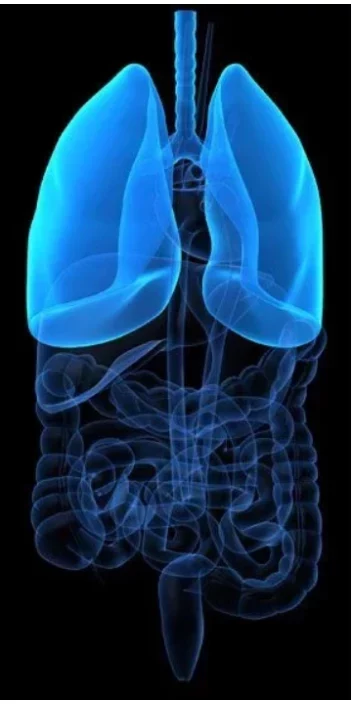Article
Afatinib Efficacious in EGFR+ NSCLC Harboring Major Uncommon Mutations, Irrespective of Ethnicity
Author(s):
Afatinib was found to be effective when used in Asian and non-Asian patients with non–small cell lung cancer with major uncommon and compound EGFR mutations, irrespective of ethnicity.

Afatinib (Gilotrif) was found to be effective when used in Asian and non-Asian patients with non–small cell lung cancer (NSCLC) with major uncommon and compound EGFR mutations, irrespective of ethnicity, according to results from a pooled analysis presented during the 2020 IASLC North America Conference on Lung Cancer.1,2
Results from a pooled analysis of randomized clinical trials and real-world studies demonstrated that afatinib elicited an overall response rate (ORR) of 66% in Asian patients with EGFR-mutated NSCLC versus 59% in non-Asian patients. Moreover, the median duration of response (DOR) in Asian patients was 14.7 months compared with 15.9 months in non-Asian patients.
The ORR with afatinib in Asian patients whose tumors harbored a G719X mutation was 62% versus 65% in non-Asian patients. For those with a L861Q mutation, the ORRs were 60% versus 50%, respectively. Lastly, in those with a S768I mutation, the ORRs were 80% versus 25%, respectively.
“These data sets further expand our understanding of afatinib’s therapeutic profile in metastatic NSCLC among those with EGFR mutation–positive disease,” said Bjoern Rueter, MD, therapeutic head of oncology, USA, at Boehringer Ingelheim.2 “As we continue to take cancer on at Boehringer Ingelheim, our ongoing research is aimed at supporting unmet treatment needs for the lung cancer and broader oncology community through leading science.”
Uncommon EGFR mutations are known to demonstrate heterogeneity with regard to their sensitivity to EGFR TKIs, according to the study authors. Afatinib has previously showcased broad activity against uncommon mutations in vitro, along with encouraging clinical efficacy with regard to the mutations G719X, L861Q, and S768I. Despite this early promise, the efficacy of the inhibitory activity of afatinib against other uncommon EGFR mutations is limited.
For the pooled analysis, investigators examined the activity of afatinib in Asian and non-Asian patients with NSCLC and uncommon EGFR mutations who had not received prior treatment with EGFR TKIs; these patients had received treatment in randomized controlled trials or in real-world studies. Uncommon mutations included de novo T790M; exon 20 insertions; major uncommon mutations like G719X, L861Q, and S768I; compound mutations; and other uncommon alterations.
The key end points of the analysis included ORR, DOR, and time to treatment failure.
Of the Asian (n = 178) and non-Asian (n = 120) patients with uncommon mutations included in the analysis, 62% and 35%, respectively, had a major uncommon mutation. Twenty percent and 20%, respectively, had G719X only; 26% and 8%, respectively, had L861Q only; 3% and 4%, respectively, had S768I only; and 16% and 39%, respectively, had exon 20 insertions.
Additional results revealed that the ORR in Asian patients with compound mutations was 81% versus 100% in non-Asian patients. The median DOR in Asian and non-Asian patients with these mutations was 11.5 months and 18.6 months, respectively.
Asian patients with other uncommon mutations experienced an ORR of 79% versus 60% in non-Asian patients. Within this subgroup, the median DOR in the Asian and non-Asian patients was 9.0 months versus 10.7 months, respectively.
Moreover, some patients who harbored exon 20 insertions responded to afatinib. The ORR in Asian patients who harbored these mutations was 21% versus 23% in non-Asian patients.
Notably, the time to treatment failure proved to be longest in patients with NSCLC that harbored major uncommon and compound EGFR mutations.
“[Afatinib had] broad activity against other uncommon EGFR mutations and some exon 20 insertion mutations, unaffected by ethnicity,” the authors concluded in the abstract. “Asian patients appeared to have a high proportion of major uncommon mutations, known to be highly sensitive to afatinib.”
References
- Yang JC-H, Schuler M, Popat S, et al. Afatinib in Asian and non-Asian patients
(pts) with EGFR mutation-positive (EGFRm+) NSCLC harboring major uncommon mutations. Presented at: 2020 IASLC North America Conference on Lung Cancer; October 16-17, 2020; Virtual. Abstract MO01.36. - IASLC NACLC 2020: Boehringer Ingelheim presents new data for Gilotrif in metastatic, squamous cell carcinoma of the lung, and in EGFR mutation-positive NSCLC. News release. Boehringer Ingelheim. October 13, 2020. Accessed October 20, 2020. https://bit.ly/3m6xUBx.








